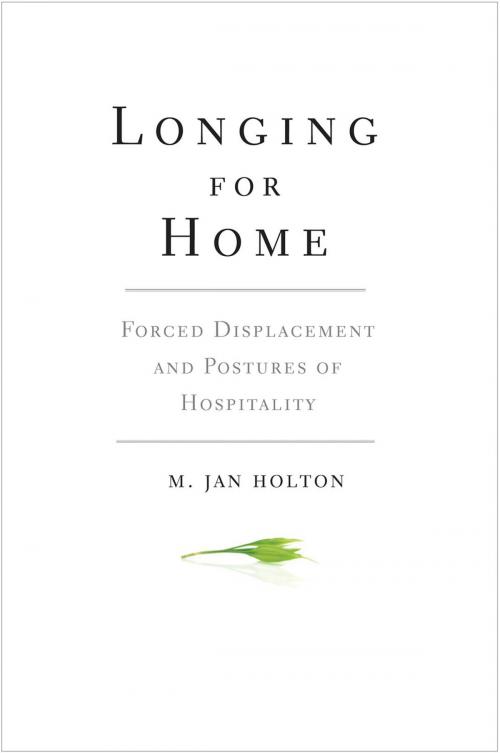Longing for Home
Forced Displacement and Postures of Hospitality
Nonfiction, Social & Cultural Studies, Social Science, Cultural Studies, Emigration & Immigration, Health & Well Being, Psychology, Social Psychology, Sociology| Author: | M. Jan Holton | ISBN: | 9780300220797 |
| Publisher: | Yale University Press | Publication: | June 28, 2016 |
| Imprint: | Yale University Press | Language: | English |
| Author: | M. Jan Holton |
| ISBN: | 9780300220797 |
| Publisher: | Yale University Press |
| Publication: | June 28, 2016 |
| Imprint: | Yale University Press |
| Language: | English |
What is it about the concept of “home” that makes its loss so profound and devastating, and how should the trauma of exile and alienation be approached theologically? M. Jan Holton examines the psychological, social, and theological impact of forced displacement on communities in the Congo and South Sudan and on indigenous Batwa tribespersons in Uganda, as well as on homeless U.S. citizens and on U.S. soldiers returning from the wars in Afghanistan and Iraq. She draws on ethnographic work in Africa, extensive research in practical theology, sociology, and psychology, as well as on professional work and personal experiences in America and abroad. In doing so she explores how forced displacement disrupts one’s connection with the home place and the profound characteristics it fosters that can help people lean toward flourishing spiritually and psychologically throughout their lifetime. Displacement invites a social alienation that can become deeply institutionalized, threatening the moral well being of us all. Longing For Home offers a frame for understanding how communities can respond to refugees and various homeless populations by cultivating hospitality outside of their own comfort zones. This essential study addresses an urgent interreligious global concern and Holton’s thoughtful and compelling work offers a constructive model for a sustained practical response.
What is it about the concept of “home” that makes its loss so profound and devastating, and how should the trauma of exile and alienation be approached theologically? M. Jan Holton examines the psychological, social, and theological impact of forced displacement on communities in the Congo and South Sudan and on indigenous Batwa tribespersons in Uganda, as well as on homeless U.S. citizens and on U.S. soldiers returning from the wars in Afghanistan and Iraq. She draws on ethnographic work in Africa, extensive research in practical theology, sociology, and psychology, as well as on professional work and personal experiences in America and abroad. In doing so she explores how forced displacement disrupts one’s connection with the home place and the profound characteristics it fosters that can help people lean toward flourishing spiritually and psychologically throughout their lifetime. Displacement invites a social alienation that can become deeply institutionalized, threatening the moral well being of us all. Longing For Home offers a frame for understanding how communities can respond to refugees and various homeless populations by cultivating hospitality outside of their own comfort zones. This essential study addresses an urgent interreligious global concern and Holton’s thoughtful and compelling work offers a constructive model for a sustained practical response.















